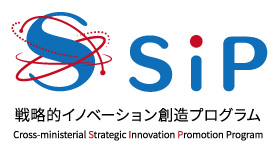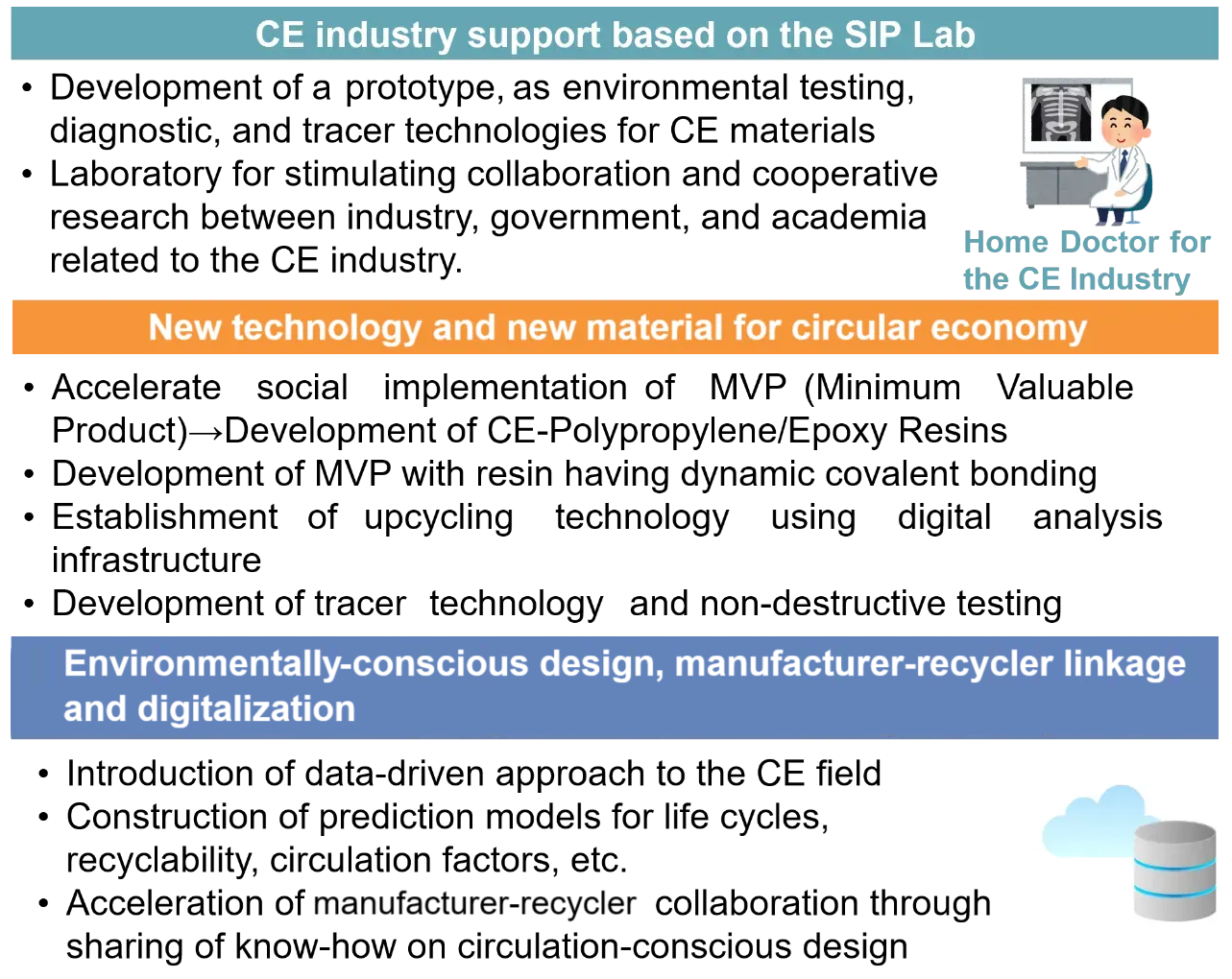C1-01 Development of environmental testing, diagnosis, and tracer technologies and digital analysis platform for industrial applications
Principal Investigator
NAITO Masanobu(National Institute for Materials Science)
Research overview
- Mission 1: Build a digital platform for information sharing
- Establish a research and development base for CE plastic materials as the CE-SIP lab at the National Institute for Materials Science (NIMS) and build a digital analysis base to promote collaborative research between industry, government and academia related to CE and strengthen industrial competitiveness.
- Mission 2: Develop technology to realize arteriovenous and venous-arterial collaboration
- Promote collaboration between recycler and manufacturer for the circular economy by establishing tracer molecules and odor identification and detection technology for recycled materials.
- Mission 3: Develop technology and create an environment to promote innovative circulation in the circular economy
- Develop circular materials based on network polymers with dynamic cross-linking structures. Also, establish environmental testing and diagnostic technology using material informatics, and tracer technology to track the sustainability of plastic products.
Carry out research and development on circular economy materials for automotive plastics to meet sustainability requirements in automobile design and end-of-life vehicles (ELV) management.
Progress and results
We have begun support for the CE industry based on the provision of advanced technologies at the CE-SIP lab, such as diagnostic technology and environmental testing. In particular, the SIP Lab has taken up the problem of odors emitted by recycled materials as a common issue, and has begun investigating the identification and quantification of odorous components.
As part of the development of a Digital Product Passport (DPP) through the creation of high-performance tracer technology, the lab is developing near-infrared absorbing materials.
In order to introduce data-driven research and development methods to the CE field using digital analysis platforms, test specimens are created from recycled materials and comprehensive thermal analysis, accelerated degradation tests, mechanical property evaluations, etc. are being carried out.
In addition, the lab has begun building a database so that machine learning can be performed based on the basic data obtained on recycled materials.


